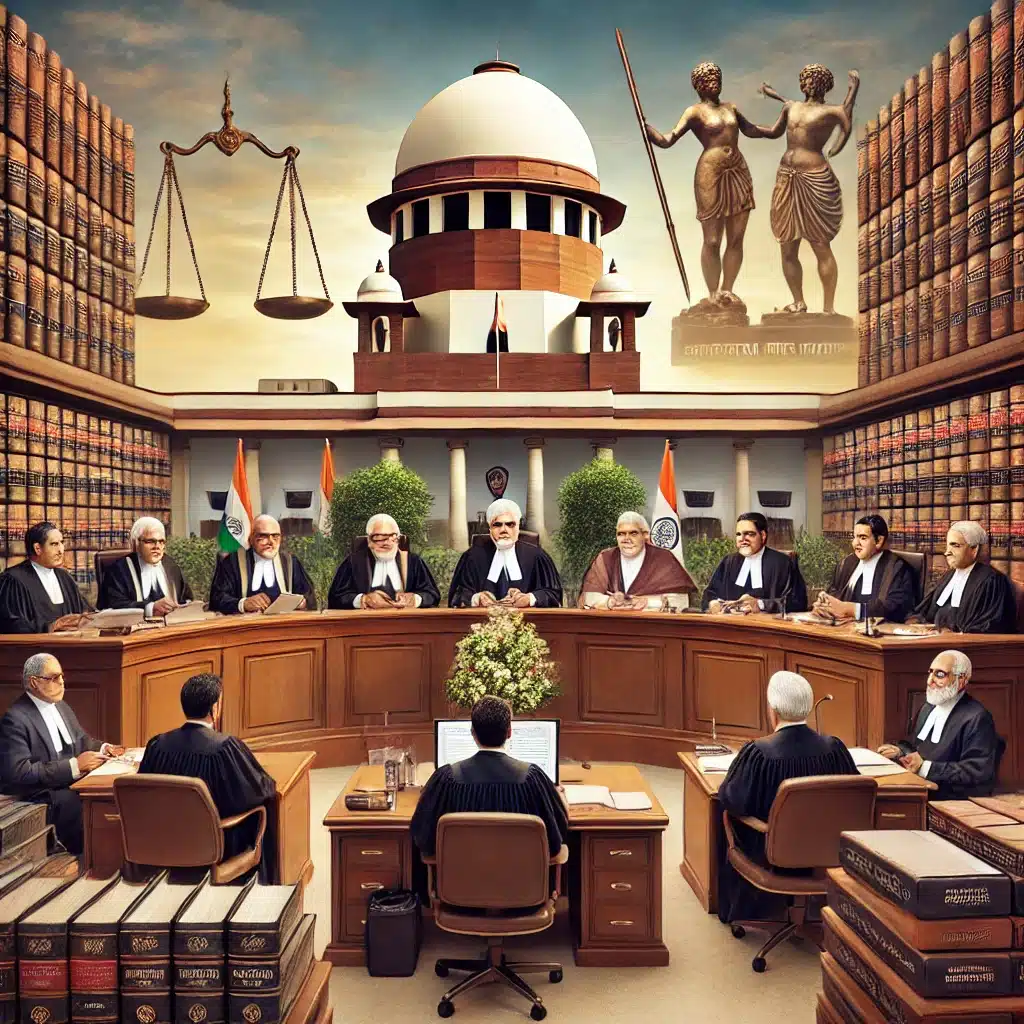The Supreme Court of India declined to entertain a PIL that sought to criminalize sexual offences against men, trans persons, and animals under the newly enacted Bharatiya Nyaya Sanhita (BNS). The Court ruled that it cannot compel Parliament to introduce such provisions, suggesting that such matters

On October 14, 2024, the Supreme Court of India declined to entertain a Public Interest Litigation (PIL) seeking directions under Article 142 to include sexual offences against men, trans persons, and animals in the Bharatiya Nyaya Sanhita (BNS). This new penal code replaces the Indian Penal Code (IPC). The petitioner had argued that the BNS failed to criminalize certain non-consensual acts, raising concerns about the exclusion of provisions similar to the repealed Section 377 of the IPC. The Court, however, emphasized that the creation of an offence is within the domain of Parliament, not the judiciary.
Background of the Case:
- Petitioner’s Contention:
- The petition argued that the BNS omits specific provisions that criminalize non-consensual sexual actsagainst men, trans persons, and animals, as was done under the erstwhile Section 377 of IPC.
- Section 377 was struck down in part by the Supreme Court in the landmark Navtej Singh Johar v. Union of India judgment, which decriminalized consensual homosexual acts. However, it left intact the punishment for non-consensual acts and bestiality.
- The petitioner sought the inclusion of similar provisions in the BNS to criminalize these acts, claiming that their exclusion creates a legal lacuna.
- Court’s Observations:
- The bench, comprising CJI DY Chandrachud, Justices JB Pardiwala, and Manoj Misra, observed that the Court cannot compel Parliament to introduce or amend laws.
- The bench remarked: “The Parliament has not introduced the provision (erstwhile Section 377), we cannot compel the Parliament to introduce the provision… we cannot create an offence.”
- The Court reiterated that Article 142 does not empower the judiciary to direct the creation of specific offences, as this responsibility lies solely within the purview of Parliament.
Key Points Raised by the Petitioner:
- Non-inclusion of sexual offences against men, trans persons, and animals:
- The petition highlighted that the BNS lacks any provisions criminalizing non-consensual sexual offencesagainst men, trans persons, and animals, which were previously covered under Section 377 of the IPC.
- The petitioner urged that these provisions should be reintroduced to maintain gender-neutrality in criminal law.
- Previous Judicial Precedents:
- The petition referenced P Ramachandra Rao v. State of Karnataka, where the Supreme Court held that the judiciary could issue guidelines to address legal lacunae.
- The petitioner also cited the Parliamentary Standing Committee on Home Affairs’ report dated November 10, 2023, which recommended reintroducing Section 377 to criminalize certain non-consensual acts.
Court’s Ruling and Recommendations:
- The Court held that it could not issue any direction to Parliament to introduce specific criminal provisions, reinforcing that it does not have the authority to legislate.
- The Supreme Court did, however, allow the petitioner to make a representation to the Union of India to address the alleged lacuna in the BNS.
- The Court noted that, while some aspects of Section 377 were decriminalized, non-consensual sexual offences and bestiality remain serious concerns. It suggested that the petitioner could approach the Government of India with these concerns.
Parliamentary Committee Observations:
- The Parliamentary Standing Committee on Home Affairs, chaired by Mr. Brij Lal, had previously recommended the reintroduction of Section 377 in the BNS to address non-consensual acts.
- The Committee emphasized that gender-neutral provisions should be retained to protect men, women, and trans persons from sexual offences.
Legal Representation:
- Counsel for Petitioners: Advocates Puru Mudgil, Ayush Saxena, Akash Vajpai, and AOR Anoop Prakash Awasthi.
- The Court refused to entertain the PIL but allowed further representation to the Union Government.
Case Details : POOJA SHARMA Versus UNION OF INDIA AND ANR. W.P.(Crl.) No. 398/2024





